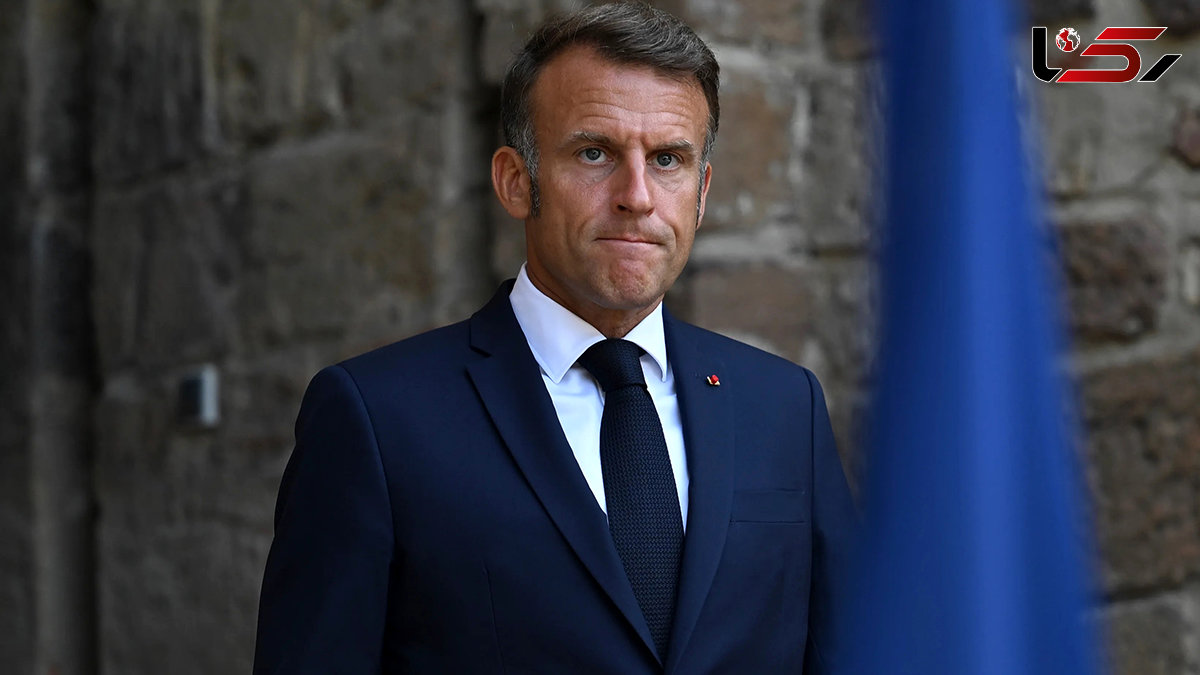Macron Blames Rivals for Political Turmoil as He Rejects Calls to Step Down
Rokna Political Desk: French President Emmanuel Macron has accused opposition parties of aggravating instability and political division, dismissing their demands for his resignation amid what many view as France’s gravest political crisis in decades.

According to Rokna, citing The Guardian, speaking on Monday upon his arrival in Egypt for a Gaza summit, Macron criticized rival parties for “fueling division and speculation” instead of acting responsibly during the crisis. “Many of those who have chosen to sow discord have failed to rise to the occasion,” he said, blaming opposition forces for “orchestrating the destabilization” of Prime Minister Sébastien Lecornu.
Lecornu, a long-time ally of Macron, convened the first meeting of his newly formed cabinet on Monday. His second administration in a week includes veteran centrists from Macron’s political camp alongside senior figures from France’s civil service and civic institutions. Notable appointments include Jean-Pierre Farandou, former head of the state-owned railway SNCF, as labour minister, and Laurent Nuñez, a former Paris police chief and ex-interior ministry official during the Yellow Vest protests, as interior minister.
The swift reshuffle followed the collapse of Lecornu’s previous government, which lasted only 14 hours before resigning amid criticism that it lacked new faces. Macron reappointed Lecornu last Friday, and a new government lineup was unveiled on Sunday. “How long will it last?” questioned several French regional newspapers, including La Provence and La République du Centre.
Since Macron’s snap election gamble last year produced a hung parliament, France has struggled with repeated political deadlock. The National Assembly remains fractured between the left, the far right, and the centrist bloc, with no single group commanding a majority.
Responding to calls for his resignation, Macron reiterated his commitment to serving the French people. “The mandate entrusted by the people is to serve—serve and serve again—and to provide solutions to the daily concerns of French citizens while safeguarding the nation’s independence,” he said. “That is what matters most. The rest is for the government to manage. My role is to maintain stability.”
Macron’s presidency runs until spring 2027. He declined to discuss the possibility of dissolving parliament or calling another snap election if Lecornu’s government fails to survive. “I’m not speculating,” he said. “What matters is that the country keeps moving forward.”
Lecornu now faces the immediate challenge of pushing the 2026 budget through parliament before the end of the year. Addressing his ministers, he said: “Our only mission is to overcome this political crisis.” He urged the cabinet to set aside personal ambitions and work together to find common ground, noting that France’s instability was “testing the patience of both its citizens and the world.”
The prime minister is scheduled to deliver his first major policy address to parliament on Tuesday afternoon. Meanwhile, both the left-wing La France Insoumise and far-right National Rally parties plan to introduce motions of no confidence. The government could fall only if several opposition factions, including the Socialist Party, unite in support of the vote.
The Socialists have said they will decide their stance after hearing Lecornu’s policy outline, warning that they could oppose the government if it fails to suspend Macron’s controversial 2023 pension reform that raised the retirement age from 62 to 64.
The cabinet is also preparing to present a draft budget on Tuesday, which includes reductions in public expenditure. Parliament has a constitutionally mandated 70 days to review the proposal before year’s end.
“We must give this country a budget, or we risk heading into chaos,” Nicolas Forissier, the new minister for external trade, told Ici Berry television.
Send Comments